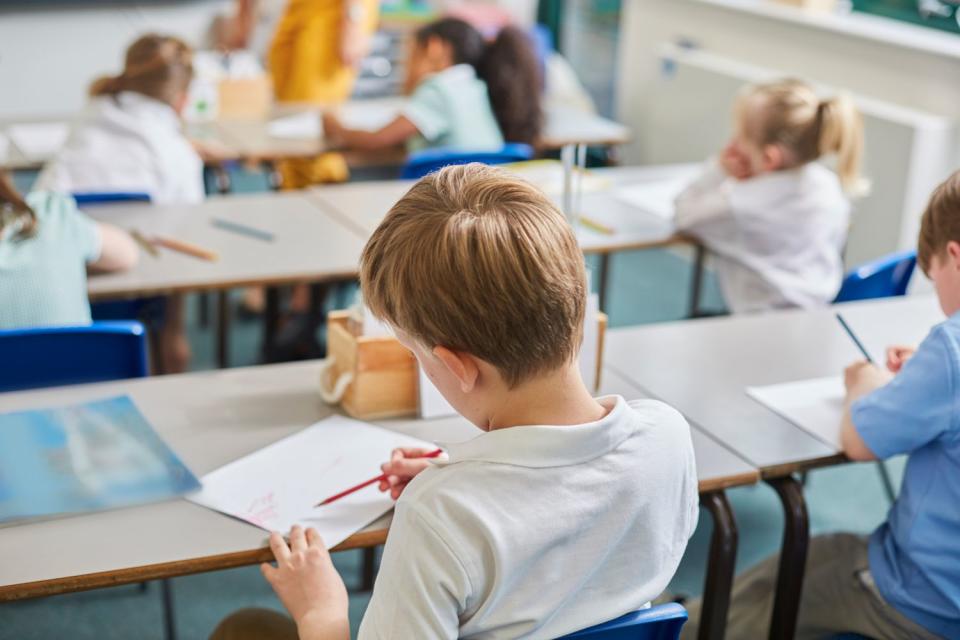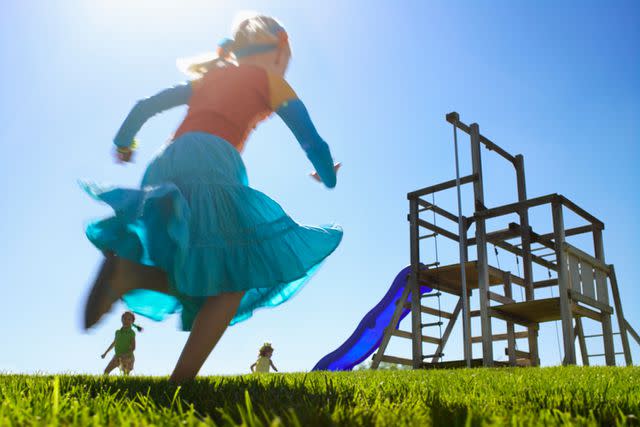Rise in ADHD Diagnoses May Be Due to 'Poor Mental Health', New Study Finds
More than 11% of children in the US have received an ADHD diagnosis in 2022, according to a new study

Getty
A stock image of a child in schoolResearchers have found a noticeable increase in children being diagnosed with ADHD, according to a new study.
The study, which was published in the Journal of Clinical Child & Adolescent Psychology on May 22 and helmed by Melissa Danielson, a statistician at the Centers for Disease Control and Prevention, found that 1 in 9 children between the ages of 3 and 17 years old in the United States were diagnosed with ADHD in 2022.
Attention-deficit/hyperactivity disorder (more commonly known as ADHD) is defined as “having symptoms of inattention and/or hyperactivity/impulsivity, functional impairment in multiple settings, and symptom onset by the age of 12 years,” per the study.
Researchers called the higher rate of diagnoses an “expanding public health concern.”
In 2018, there was a 10.2% increase in ADHD diagnoses in the US between 2015-2016, data collected by the National Health Interview Survey suggests. According to their research, “In 2022, 11.4% of U.S. children aged 3–17 years” were diagnosed with ADHD, which translates to roughly 1 in 9 children.

Getty
A stock image of a child running in a playgroundOne result in the new study indicated that boys had a “higher prevalence” of ADHD than girls. “Boys more often had behavioral or conduct problems or ASD than girls, while a higher prevalence of girls had anxiety or depression than boys,” it noted.
Researchers concluded through the study that the main reasons for the uptick in diagnoses could be due to a “generally increasing awareness of and pursuit of care for ADHD, and/or could be a reflection of poor mental health among children during the COVID-19 pandemic.”
Related: Busy Philipps Says Her ADHD Created 'Internal Chaos that I Was Managing Constantly’
The public awareness of ADHD has transformed with “potentially reduced stigma” for seeking mental health care to treat the disorder. The study further suggested that if more children are screened, it could be beneficial.
Meanwhile, it noted that an “overall trend of increases in child and adolescent depression and anxiety present before the pandemic,” which was across several studies, could lead to more diagnoses.
Despite these factors, there has been a decrease in the number of children receiving medication or behavioral treatment for ADHD. 30.1% of children with ADHD were not receiving behavioral treatment or medication in 2022 compared to 23% in 2016, according to the study.
For more People news, make sure to sign up for our newsletter!
Read the original article on People.


